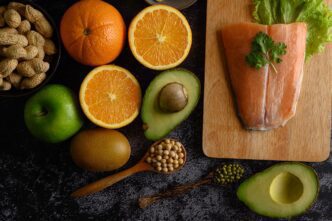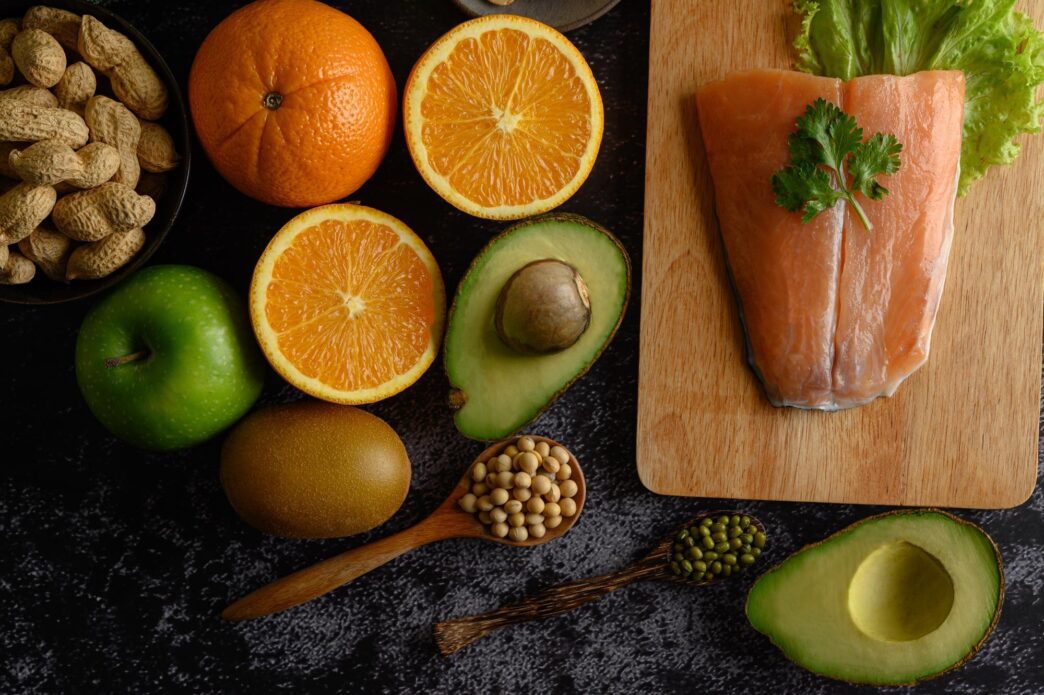A Quick Takeaway
The Story Behind the Trend
How to Make It Work for You
The Community View
Optimizing cognitive health and boosting brainpower is a goal for many, and the good news is that your diet plays a profound role in achieving it. Who stands to benefit? Everyone, from students and busy professionals to aging adults, can enhance their mental acuity, memory, and focus by strategically incorporating specific nutrient-dense foods. What are these powerhouse foods? They are primarily rich in omega-3 fatty acids, antioxidants, B vitamins, and complex carbohydrates, all essential for brain structure, function, and protection. When should you start? The sooner, the better, as consistent nutritional support can lead to long-term cognitive resilience. Where can you find them? These vital ingredients are readily available in grocery stores, farmers’ markets, and even your own garden, making brain-boosting nutrition accessible to all.
The Science Behind Brain-Boosting Nutrition
Our brain, though only about 2% of our body weight, consumes roughly 20% of our daily caloric intake. This energetic demand underscores its critical need for a consistent supply of high-quality nutrients. What we eat directly impacts brain structure, neurotransmitter production, and the brain’s ability to protect itself from damage and inflammation.
A diet rich in certain compounds can enhance neuroplasticity, the brain’s ability to form new neural connections, which is crucial for learning and memory. It also helps in maintaining the integrity of blood vessels that supply the brain, ensuring adequate oxygen and nutrient delivery. Conversely, diets high in processed foods, sugar, and unhealthy fats can lead to inflammation and oxidative stress, potentially impairing cognitive function over time.
Key Nutrients for Optimal Cognitive Function
Several key nutrients are particularly vital for brain health. Understanding their roles helps explain why certain foods are so beneficial. These include omega-3 fatty acids, antioxidants, B vitamins, and various minerals.
Omega-3 Fatty Acids
Omega-3s, particularly EPA and DHA, are fundamental building blocks of brain cell membranes. They play a critical role in brain development and function, improving memory, learning, and mood regulation. These essential fats also have powerful anti-inflammatory properties, protecting the brain from cellular damage.
Antioxidants
The brain is highly susceptible to oxidative stress due to its high metabolic rate. Antioxidants, such as flavonoids, polyphenols, and vitamins C and E, combat free radicals, which are unstable molecules that can damage brain cells. By neutralizing these free radicals, antioxidants help preserve cognitive function and may reduce the risk of neurodegenerative diseases.
B Vitamins
B vitamins, including folate (B9), B6, and B12, are crucial for various brain processes. They are involved in energy production, the synthesis of neurotransmitters (chemical messengers like serotonin and dopamine), and the reduction of homocysteine levels, an amino acid linked to cognitive decline when elevated. A deficiency in B vitamins can impair memory and overall brain function.
Vitamin K
Vitamin K is a fat-soluble vitamin known for its role in blood clotting, but it’s also emerging as important for brain health. It’s involved in the synthesis of sphingolipids, a type of fat found in brain cell membranes, and has anti-inflammatory properties that may help protect brain tissue.
Top Brain-Boosting Foods to Incorporate
Armed with knowledge about key nutrients, let’s explore the specific foods that can significantly enhance your cognitive health.
Fatty Fish
Foods like salmon, mackerel, tuna, and sardines are exceptionally rich in omega-3 fatty acids, particularly DHA. Regular consumption can improve memory, focus, and overall brain performance. Aim for at least two servings per week to reap these benefits.
Berries
Blueberries, strawberries, raspberries, and blackberries are packed with antioxidants, especially flavonoids. These compounds can help improve communication between brain cells, reduce inflammation, and delay age-related cognitive decline. A handful of mixed berries makes an excellent snack or addition to oatmeal.
Leafy Green Vegetables
Spinach, kale, collard greens, and Swiss chard are nutritional powerhouses for the brain. They provide vitamin K, lutein, folate, and beta-carotene, all of which have been linked to slowing cognitive decline. Incorporate them into salads, smoothies, or sautéed dishes daily.
Nuts and Seeds
Walnuts, almonds, chia seeds, and flaxseeds offer a potent combination of omega-3s (especially ALA in walnuts and flaxseeds), vitamin E, and antioxidants. Vitamin E helps protect cell membranes from oxidative damage. A small handful of mixed nuts and seeds is a perfect brain-healthy snack.
Whole Grains
Oats, brown rice, quinoa, and whole-wheat bread provide a steady supply of glucose, the brain’s primary fuel source, thanks to their complex carbohydrates. They also contain B vitamins, which support nerve function and energy metabolism. Opt for whole grains over refined grains to avoid energy crashes.
Coffee and Tea
Both coffee and tea contain caffeine, which can temporarily boost alertness and concentration. Beyond caffeine, they are rich in antioxidants. Green tea, in particular, contains L-theanine, an amino acid that can promote relaxation without drowsiness and enhance cognitive function.
Dark Chocolate
Choose dark chocolate with at least 70% cocoa for a brain-friendly treat. It’s rich in flavonoids, caffeine, and antioxidants, which can improve blood flow to the brain and enhance mood and memory. Enjoy in moderation, as it’s still high in calories.
Avocados
Avocados are an excellent source of monounsaturated fats, which promote healthy blood flow, essential for brain function. They also provide vitamins K, C, E, and several B vitamins. Add slices to salads, sandwiches, or mash them for a brain-boosting guacamole.
Eggs
Eggs are a versatile and affordable brain food, particularly known for their choline content. Choline is a precursor to acetylcholine, a neurotransmitter critical for memory and mood. They also contain B vitamins and antioxidants like lutein. Enjoy them scrambled, boiled, or poached.
Practical Tips for Your Plate
Integrating these brain-boosting foods into your daily diet is simpler than you might think. Start by making small, consistent changes. Focus on variety to ensure you’re getting a broad spectrum of nutrients. Plan your meals and snacks to include a mix of these power foods throughout the day.
Remember that hydration is also crucial for cognitive function; aim for adequate water intake daily. While diet is paramount, combining it with regular physical activity, sufficient sleep, and stress management techniques will create the most robust foundation for optimal cognitive health and sustained brainpower.
Embracing a Brain-Healthy Lifestyle
Nourishing your brain with the right foods is a powerful investment in your cognitive future. By prioritizing fatty fish, vibrant berries, leafy greens, nuts, seeds, and whole grains, you are actively supporting your brain’s ability to function at its peak. These dietary choices not only enhance immediate cognitive performance but also lay the groundwork for long-term brain health, helping to safeguard memory, focus, and overall mental sharpness as you age. Make conscious food choices today to empower a brighter, more alert tomorrow.







